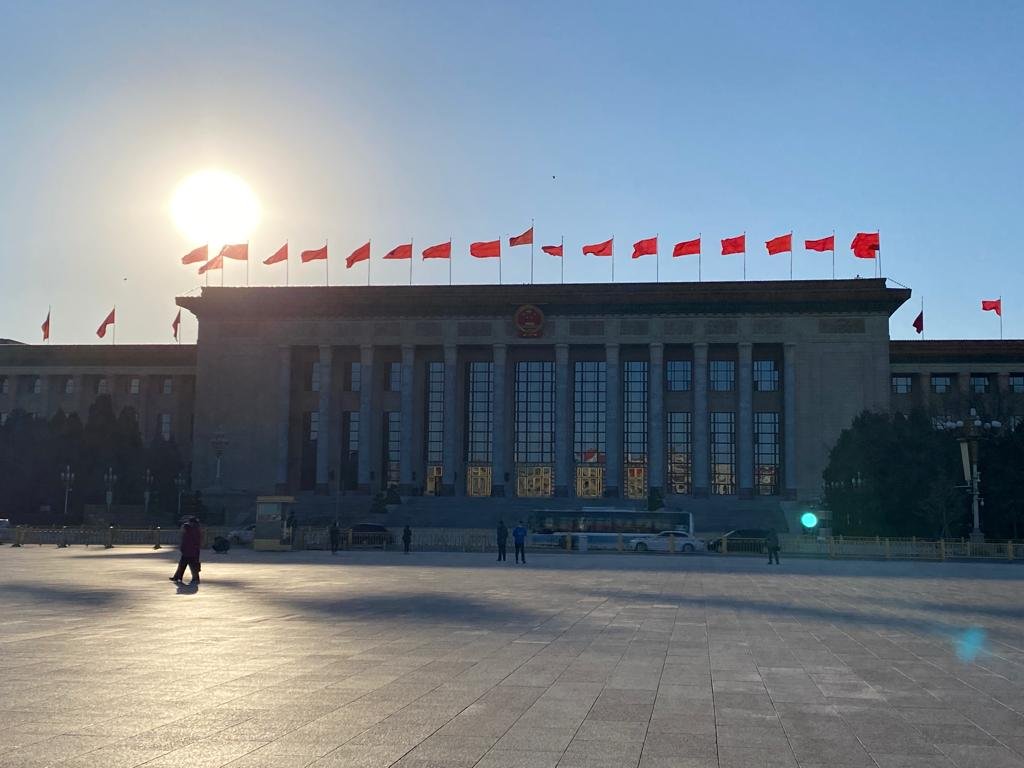Beijing seems to be seeking stronger legal protections for China’s security and rights in its territorial waters, airspace as well as in outer space. The communist country also wants to extend these legal provisions to its global infrastructure program, the Belt and Road Initiative (BRI).
This comes only days after President Xi Jinping told the People’s Liberation Army to step up the use of law in military engagement with foreign countries.
“Improve the laws and regulations governing military engagement with foreign countries,” Xi, who is also the Chairman of the Central Military Commission, was quoted as saying by Reuters in a meeting with PLA representatives in the parliament.
A discussion was held with senior officials from the PLA and the People’s Armed Police Force as part of a “two-session” meeting in Beijing last week. This was focused on stronger legal protections for China’s security and rights in terms of its territorial waters, airspace as well as outer space.
The fifth session of the 13th National Committee of the Chinese People's Political Consultative Conference, China's top political advisory body, started its closing meeting on Thursday morning. President Xi Jinping and other Chinese leaders attended the meeting. #TwoSessions2022 pic.twitter.com/PLMojhYGT4
— libijian李碧建 (@libijian2) March 10, 2022
The military delegates discussed Xi’s statements at a panel meeting the next day, according to briefing notes released to the media, including ways to speed up the legislative process.

Former Southern Theatre Command chief Wang Jiaocheng, a member of the NPC Standing Committee, urged the use of legal weapons to safeguard national security in areas including foreign trade, maritime rights and interests, and outer space security.
Li Jun, the deputy commander of the Rocket Army, stated that legislative work should be broadened to defend overseas interests. “We rely on legal weapons to combat various separatist forces, behavior and speech, so that where national interests extend, legal protection extends, to defend and protect the country’s overseas interests,” he said.
Legal tools, according to the experts and other armed service delegates, vary from international treaties on overseas military deployments to peacekeeping missions to a legal justification for military intervention in disputed areas such as the South China Sea.
‘Foreign-Related Legal Work’
Beijing has long advocated for the prioritization of “foreign-related legal work” such as participating in the creation of international law, settling issues through treaties, and adjusting domestic laws to align them with those of other jurisdictions, as part of its efforts to uplift the role of laws in governing the country.
The term “foreign-related legal work” has been used mostly in international trade, with little application to military engagement rules. At the annual meeting of the National People’s Congress (NPC), China’s legislature, Xi told military and paramilitary delegates that China must accelerate the “fundamental change” in how the military is governed.
“We must adhere to the party having absolute leadership over the military, adhere to the standard of combat effectiveness and adhere to the building of a military rule of law system with Chinese characteristics,” he said. He went on to say that the process of enacting military legislation should be more systematic, thorough, and coordinated.
In its 2021 annual report, the NPC Standing Committee, China’s highest legislative body, also asked for the creation of additional “foreign-related laws,” which, it described as a “legal toolbox” to protect against sanctions, foreign intervention, and other nations’ long-arm jurisdiction.
Former air force commander Ding Laihang, speaking about China’s global infrastructure program, suggested to the panel that legal protections for construction projects associated with the BRI could be strengthened.
President Xi Jinping announced the Belt and Road Initiative (BRI) in 2013, a global infrastructure program encompassing almost 140 nations and involving over $1 trillion in projects linked to energy, transportation, digital networks, and trade.
He also advocated stronger rights protections for China’s territorial waters and airspace “so as to provide a legal basis and rich methods and means for international rights protection”. Beijing, according to Chinese experts, is experiencing rising tensions in a range of border disputes, as well as deteriorating relations with the United States.
Last week’s group discussion on legislation covering foreign-related activity was set against the backdrop of increased military operations near “China’s territory” by other nations, according to Zhou Chenming, a researcher at a Beijing-based think tank.
“Recently, Western countries have come to the South China Sea and Taiwan Strait more frequently, so we should respond reasonably and legally,” he said. According to Zhou, the debate could have also included China’s foreign military exchanges, which have been halted due to the Covid-19 pandemic.
China’s rising international footprint, according to He Zhipeng, a law professor at Jilin University in northeastern China, necessitated the strengthening of its foreign-related military regulations.
China’s military rule of law was deficient in comparison to other large countries, and legislators might rely on limiting the use of force, he said.
In a similar line, another expert, Tian Shichen, director of the Beijing-based Centre for International Law of Military Operations, expressed concern about China’s weak legislation compared to other big powers.
To better serve China’s objectives, he said, the government needed to expand its study into the domestic application of international accords.
Tian also stated that China needed to study and participate more in the development of international military rules, particularly in emerging areas such as space, cyber, and the impact of operations on the environment.
- Contact the author at ashishmichel@gmail.com
- Follow EurAsian Times on Google News